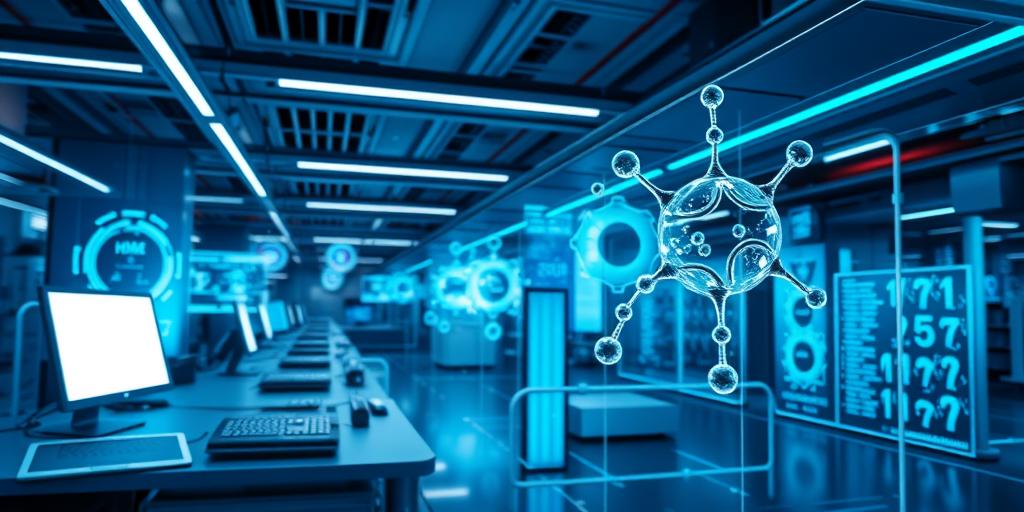AI in Drug Discovery and Development: Accelerating Cures (2025)
Artificial intelligence (AI) is rapidly transforming various industries, and the pharmaceutical sector is no exception. In 2025, AI’s role in drug discovery and development has become even more pronounced, promising to accelerate the creation of life-saving treatments and cures.
The Current Landscape
Traditionally, drug discovery is a lengthy, expensive, and high-risk process. It often takes over a decade and billions of dollars to bring a new drug to market, with a high failure rate. AI offers solutions to streamline and optimize these processes, enhancing efficiency and reducing costs.
How AI is Revolutionizing Drug Discovery
-
Target Identification and Validation: AI algorithms can analyze vast amounts of biological data to identify potential drug targets more accurately and efficiently than traditional methods. Machine learning models can predict the efficacy and safety of targeting specific proteins or genes.
-
Drug Design and Optimization: AI aids in designing drug candidates with desired properties. Generative AI models can create novel molecular structures with a higher probability of success, optimizing factors like binding affinity, solubility, and bioavailability.
-
Preclinical Testing: AI can simulate drug interactions with biological systems, predicting potential adverse effects and efficacy before clinical trials. This significantly reduces the number of animal experiments and accelerates the selection of promising drug candidates.
-
Clinical Trial Optimization: AI algorithms help in designing more efficient clinical trials, identifying suitable patient populations, predicting patient responses, and optimizing dosage regimens. This leads to faster and more cost-effective trials.
-
Drug Repurposing: AI facilitates the identification of existing drugs that can be repurposed for new diseases. By analyzing drug-disease relationships, AI can uncover hidden therapeutic potentials, accelerating the availability of treatments for rare or neglected diseases.
AI Technologies in Action
- Machine Learning (ML): Used for predictive modeling, pattern recognition, and data analysis to identify potential drug candidates and predict their efficacy.
- Deep Learning (DL): A subset of ML that uses neural networks to analyze complex datasets, enabling the discovery of intricate relationships between genes, proteins, and diseases.
- Natural Language Processing (NLP): Employed to extract valuable insights from scientific literature, patents, and clinical trial reports, accelerating the understanding of disease mechanisms and potential treatments.
- Generative AI: Creates novel molecular structures with desired properties, significantly speeding up the drug design process.
Challenges and Opportunities
Despite its transformative potential, the integration of AI in drug discovery is not without challenges. Data quality and availability, regulatory hurdles, and the need for skilled professionals are some of the key obstacles.
However, the opportunities are immense. As AI technologies continue to advance, we can expect:
- Faster drug discovery timelines
- Reduced drug development costs
- More personalized and effective treatments
- Increased success rates in clinical trials
- Development of treatments for previously untreatable diseases
The Future of AI in Drug Discovery
In 2025, AI is poised to become an indispensable tool in the pharmaceutical industry. Its ability to accelerate drug discovery and development promises to revolutionize healthcare, making treatments more accessible and effective for patients worldwide. The continued advancement and integration of AI technologies will undoubtedly shape the future of medicine, paving the way for a healthier and brighter future.
By embracing AI, the pharmaceutical industry can unlock new possibilities, accelerating the pace of scientific discovery and ultimately improving the lives of millions. As we move forward, collaboration between AI experts, biologists, and clinicians will be crucial to realizing the full potential of AI in drug discovery and development.
